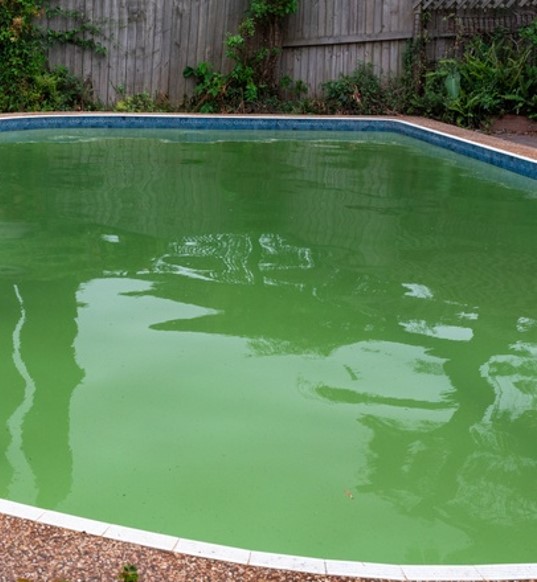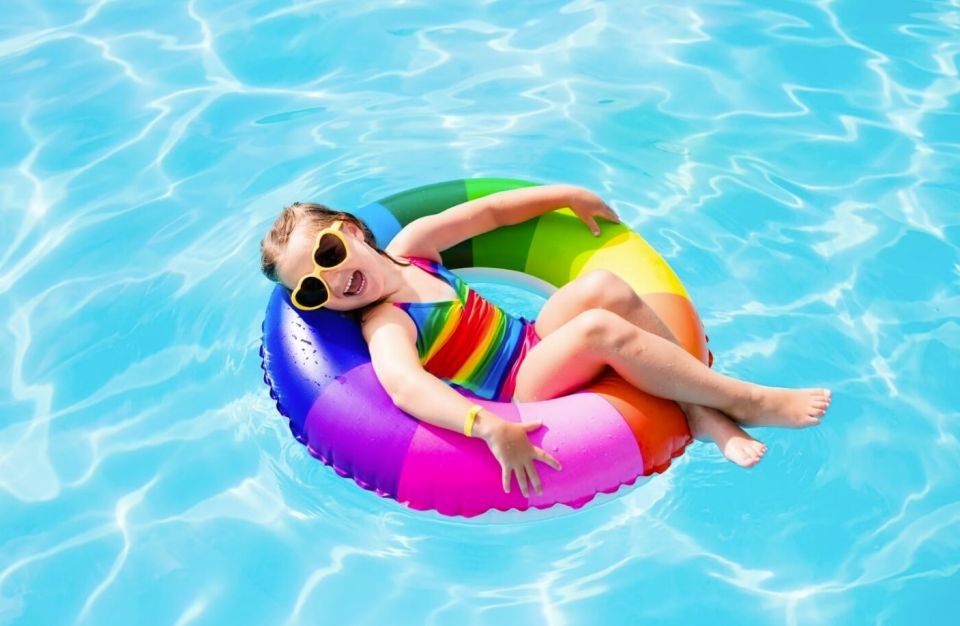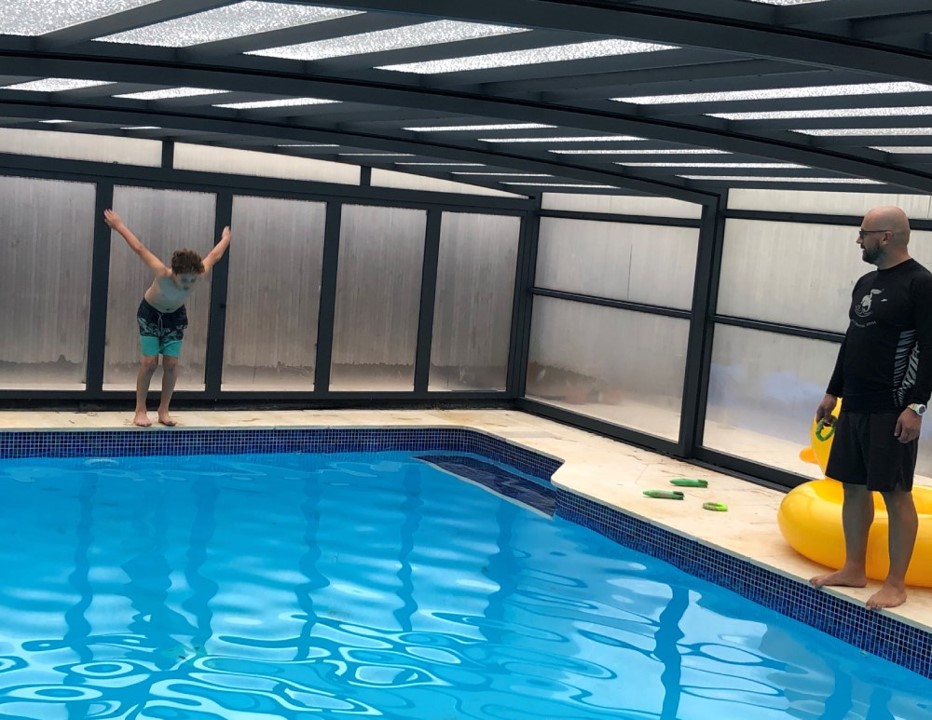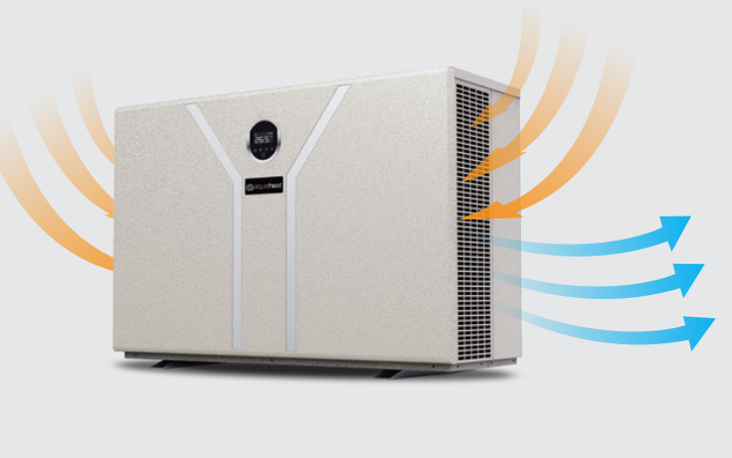
Algae
Fix green pool water because it is likely caused by algae, which is dangerous to your family and friends and will harm your pool equipment.
Electric heat pumps create warmer pool water and that encourages micro-organisms to grow and proliferate faster making pool water green.
Green pool water is a visual clue that your pool water may be contaminated.
Apart from algae, micro-organisms may include bacteria, fungi and germs.
Safe Pool
Have fun and make memories in and around your pool. Swimming is a beautiful sharing activity for people of all ages providing a focal point for togetherness.
Enjoy the peace of mind that comes from knowing your pool water is safe.
Experience better physical and mental health with your beautiful clean and safe pool.


Contamination Risk
Fix green pool water because it causes contamination from:
- Ingesting the pool water
- Touching the water with eyes, nose, mouth or ears
- Inhaling the water vapour, especially from indoor pools if ventilation is not adequate
- Water transmission of allergies and germs from other people
Maintenance Plan
Develop a maintenance plan for your pool either by yourself or by pool professionals. It should include monitoring the following:
- pH level
- Chlorine
- Water purity
- Filter system
- Water pump
- Chemical dosing system
- Electrical connections
Swimming pools have restricted water volume and continually pick up micro-organisms that have nowhere to go. Micro-organisms break down the free chlorine available to fight them. Direct sunshine also breaks down free chlorine.
If left untreated, they will proliferate and turn your pool water green. Therefore, ensure safety traceability and measurement is included in your maintenance plan.
Pool Chlorine
Chlorine is a natural disinfectant for pool water and will fix green pool water. However, to be effective it needs to be active in the pool water at low doses over an extended period.
An optimal level of chlorine concentration must be maintained in the water during the swimming season.
Green pool water has a high pH level which encourages algae growth. Fix this by shocking the pool water with a very high dose of chlorine.
Bring the pH level down by adding some hydrochloric acid, which will also improve the chlorine’s effectiveness and the quality of the water.
Choose one of the following three methods below for chlorinating your fresh water pool.
1. Natural Chlorine
A natural chlorinator has advantages:
- Effectively cleans and sanitizes the pool
- No handling of dangerous solutions
- Avoids risk of inflamed eyes or skin
- Chlorine production is regulated
- New digital models continuously monitor and control chlorine and pH levels
- Uses little energy
Make sure your natural chlorinator is properly maintained and regularly remove limescale build-up from the cell.
2. Liquid Chlorine
Liquid chlorine is a solution supplied in bottles and should be kept in a dark, cold location. However, it loses its active concentration over time. It also increases the pH level of your pool water, which will need correcting.
3. Chlorine Tablets
Chlorine pills that have been dried and hardened are a common sanitization method available. This method is more secure and provides a convenient dosing solution.
Alternatively, use a floating chlorination device. It is best located in the pool’s skimmer box. Tablets that improve water clarity and extend the usable life of chlorine are often included in the pills.
Salt Water Pool
A salt water pool uses a salt chlorine generator to avoid water contamination.
The salt chlorine generator separates the salt from the water and converts it into hydrogen and hypochlorous acid. It is this acid that disinfects the pool water replacing the need for chlorine.
A salt water pool has a naturally high pH level that needs to be brought down to between 7.0 and 7.6. If the pH is higher than 8.0, it may cause skin rashes. If lower than 7.0, it may sting your eyes.
Salt Water Pros & Cons
A saltwater pool has benefits over a fresh water pool:
- Easier to maintain
- No need to handle chlorine which can be dangerous
- Water usually feels a bit softer
However, there are drawbacks also:
- More expensive to set up
- Saltwater is very corrosive even for stainless steel and other metallic items around the pool
- Equipment or chemical problems are more likely to require a pool professional

Heat Pump Pool Heating
Extend your swimming season by heating your pool sustainably. A heat pump uses solar energy from the heat in the surrounding air.
Gas boilers have been used traditionally but due to concerns of global warming and the rising cost of gas, solar systems and electric heat pumps powered by solar panels have become more popular.
The main advantage of a heat pump over a solar system is that it doesn’t take up roof space that can be otherwise used for solar panels, which also generate power for other household needs.
Use Your Hydronic Heat Pump
If you have heat pump hydronic heating, you may adapt your hydronic heat pump for pool heating in summer. Add a titanium pool heat exchanger to transfer heat from your hot hydronic water to your pool water.
Strong sunshine in summer is also effective at heating your pool but it breaks down the free chlorine that is used to treat your pool water. It releases chlorine as a gas into the atmosphere on hot sunny days that you can smell.
Warm Water Encourages Algae
Note that your warmer pool water will encourage micro-organisms to grow and proliferate faster, including dangerous algae. This causes the free chlorine to be used up more quickly as it kills the bacteria.
Therefore, factor in the effects of sunshine and warmer pool water into your pool water maintenance plan.
Contact a pool professional to help you treat your pool water if it turns green.
